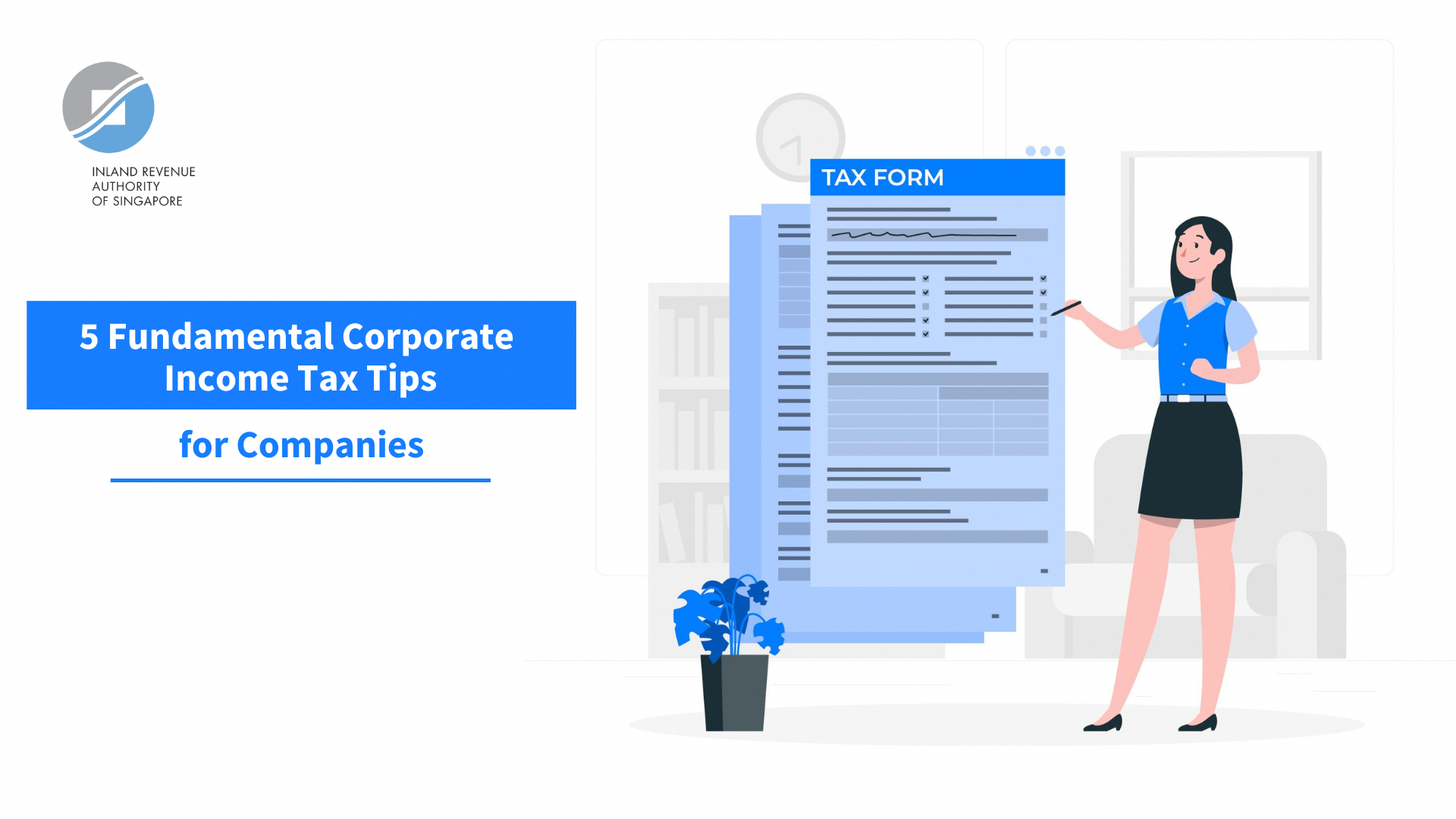Five fundamental Corporate Income Tax tips for companies

As the year comes to a close, companies are gearing up for the Corporate Income Tax (CIT) filing for the Year of Assessment (YA) 2024. The Inland Revenue Authority of Singapore (IRAS) shares five CIT tips to help you navigate your company’s CIT filing without breaking a sweat.
- All Companies Need to File by 30 Nov
A common misconception is that dormant or loss-making companies are exempt from filing tax returns. In fact, all companies, including those that did not carry on business or had incurred losses in the financial year, must file the YA 2024 CIT Returns (Form C-S/ Form C-S (Lite)/ Form C) by 30 Nov 2024 unless they have received a waiver to file the CIT return. Companies with no business activities or no intention to continue business may apply for a waiver to file the CIT Returns.
- Maintain Proper Records and Adopt Seamless Filing From Software (#SFFS)
It is important for all companies to maintain proper business records and accounts, and retain them for at least 5 years. Consider adopting Seamless Filing from Software (#SFFS), which could help in managing your day-to-day operations and transactions digitally, while enabling the Form C-S submission to IRAS directly in just a few clicks of buttons during the filing season.
#SFFS can save up to 95% (i.e., from 8 hours to 15 minutes) of the time needed to prepare and submit Form C-S to IRAS. Not only does the software convert the accounting data to tax data through an automatic tax conversion tool, it also improves accuracy by reducing potential transposition errors through eliminating the need for manual data entry into myTax Portal.
To allow companies more time to transit to and familiarise with using #SFFS, IRAS will:
(i) Automatically extend the CIT filing due date by 15 days (i.e. from 30 Nov to 15 Dec) for YA 2023 to YA 2025 Form C-S returns filed through #SFFS.
(ii) Waive penalties for errors made in Form C-S due to unfamiliarity with the use of the software for tax returns filed through #SFFS. The waiver does not apply to errors made without reasonable excuse, through negligence, or with wilful intent to evade tax.
- File Form C-S (Lite) if Your Company Has Straightforward Tax Matters
Enjoy the breeze of filing Form C-S (Lite), if your company’s annual revenue is $200,000 or below, and meets the qualifying conditions to file Form C-S. Form C-S (Lite) is a simplified version of Form C-S that requires only 6 essential fields to be completed by companies with straightforward tax matters.
Like Form C-S, your company will not be required to submit its financial statements and tax computation when filing Form C-S (Lite). However, your company should still prepare these documents and be ready to submit them upon IRAS’ request.
- Not All Business Expenses are Tax-Deductible
It is a common mistake to assume that all business expenses can be claimed as tax deductions. For example, private car (e.g., S-plated car) expenses, such as petrol, road tax, parking and ERP charges, are not tax-deductible, even if the car is used for business purposes.
However, companies can claim tax deductions for transport allowances provided to employees.
Learn more about what is tax-deductible and what is not here.
- Claim Capital Allowances for Qualifying Fixed Assets
Incurred expenditure on plant and machinery such as office furniture or office equipment (e.g., computers or printers)? Your company can claim capital allowances for qualifying fixed assets that are bought and used for trade or business. There are various methods for calculating capital allowances. For example, you may choose to write off low-value assets (not exceeding $5,000 each) in one year, but the total claim of all low-value assets must not exceed $30,000 per YA. Otherwise, you can still claim capital allowances over 2 years (on cost incurred in acquiring the asset during the basis periods for YAs 2021, 2022 and 2024), 3 years or the prescribed working life for the assets.
Learn more about how to claim capital allowances here.
By following these five tax tips, you can streamline your tax preparation process, ensure compliance with regulations, and potentially reduce your tax bill — all without feeling vexed over tax matters. Do check out the CIT Filing Season 2024 webpage for a one-stop filing guide as well as some common filing mistakes that can be avoided.


